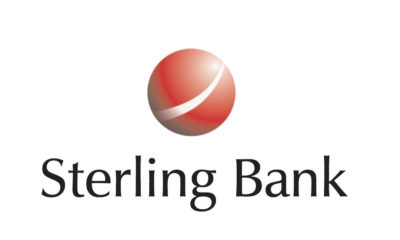Nexford University, a Washington D.C. based, next-generation online university – announces a major new partnership with Sterling Bank, one of Nigeria’s largest commercial banks.
The Sterling Bank and Nexford program is called ‘Fund Your Future’ and is part of Nexford’s wider ‘Learn to Earn’ project for emerging markets. It is designed to solve three major challenges:
- Enabling employers to find qualified entry-level talent;
In the World Economic Forum’s index, Nigeria scored 44% on human capital development (measured by skills acquisition) trailing the Sub-Saharan African average of 55%
Nigerian employers faced the most difficulties in filling managerial, professional and technical jobs due to a lack of skilled applicants
- Helping students with affordable access to university
50% of Nigeria’s high school graduates fail to gain admission to local universities and other institutions of learning;
- Giving students skills they need to actually get jobs
Employers across emerging markets struggle to find qualified entry-level talent, and are forced to invest in expensive and time-consuming training. Paradoxically, despite high emerging market unemployment levels, employers still struggle to find this qualified talent. In a McKinsey survey of young people and employers in nine countries, including major developing countries, 40% of employers noted a lack of skills was the main reason for entry-level job vacancies. 60% said new graduates were not adequately prepared for the world of work.
For Sterling Bank, the benefits are multiple. First is access to student talent – which has been given an education – by Nexford – specifically tailored to their corporate needs. This saves Sterling money on current early-stage training to upskill graduates to the required level. Nexford’s competency-based curriculum also provides Sterling with multiple data points to evaluate applicants’ qualifications, thus saving time on filtering large numbers of applications and the wider recruitment process.
For students, Sterling Bank is playing two roles; it will underwrite loans to fund their tuition fees with Nexford. This will protect students against Naira foreign exchange fluctuations. These fluctuations, plus US dollar restrictions, make budgeting for degree costs difficult. Sterling will put students back in control of their finances. Secondly, Sterling Bank is providing students with partial scholarships and internships during students’ studies, plus post-graduation job opportunities.
The wider context is, in markets such as the US, employer-funded education has grown significantly, with $82.5 billion spent on upskilling there in 2020. In 2020, the World Economic Forum also stated that 1 billion workers will need to be reskilled by 2030. While the need for upskilling globally is significant, young populations means emerging markets face significant shortages of qualified entry-level talent.
The ‘Nexford for Business’ program which launched in 2020 focuses on reskilling and upskilling employees. Large employers such as Dangote Cement in Nigeria, Indosat in Indonesia, and Hassan Allam Holding in Egypt are employers who have already partnered with Nexford to upskill their employees.
In each market, Nexford will partner with a different organization to fund, and several organizations on the employment side. Employers will identify the skills they need, and Nexford will identify the programs to deliver those skills. When learners complete the programs, they will have a far greater chance of gaining employment opportunities.
Nexford University’s CEO, Fadl Al Tarzi, said:
“Our partnership with Sterling Bank is a perfect example of how Nexford is helping bridge gaps between employers and higher education. We are committed to making access to qualified talent far easier for employers, while making education more accessible and relevant for learners. We are delighted to partner with an institution privileged to have such forward thinking leadership, the Sterling Bank partnership kicks off our global roll-out. This is a perfect match and surely the first of many such partnerships.”
Mr. Obinna Ukachukwu, Divisional Head, Health and Education sectors with Sterling Bank, commented:
“The programme is designed to solve three major challenges of enabling employers to find qualified entry level talent, helping students with affordable access to university and giving students the skills they need to actually get jobs.”
“In the World Economic Forum’s index, Nigeria scored 44 percent on human capital development when measured by skills acquisition, trailing the sub-Saharan African average of 55 percent by 11 percent. Also, Nigerian employers face the most difficulties in filling managerial, professional and technical jobs due to lack of skilled applicants.”
Launched in 2019, Nexford’s leverages machine learning and Artificial Intelligence to create a data and skills-driven curriculum, specifically designed to match employers’ needs with its graduates’ skills. It has learners enrolled from over 65 countries, and has partnerships with Microsoft, LinkedIn Learning and IBM to provide access to tools, courses and programmes to enrich the learning experience.

 Education4 weeks ago
Education4 weeks ago
 News3 weeks ago
News3 weeks ago
 Business3 weeks ago
Business3 weeks ago
 Technology3 weeks ago
Technology3 weeks ago
 Investment4 weeks ago
Investment4 weeks ago
 Investment3 weeks ago
Investment3 weeks ago
 Telecommunications4 weeks ago
Telecommunications4 weeks ago
 Banking Sector3 weeks ago
Banking Sector3 weeks ago




























